Is 先生(せんせい)が休(やす)みの日(ひ) exactly the same as 先生(せんせい)が休(やす)む日(ひ)? Both of these phrases use a contact clause and from a student’s point…
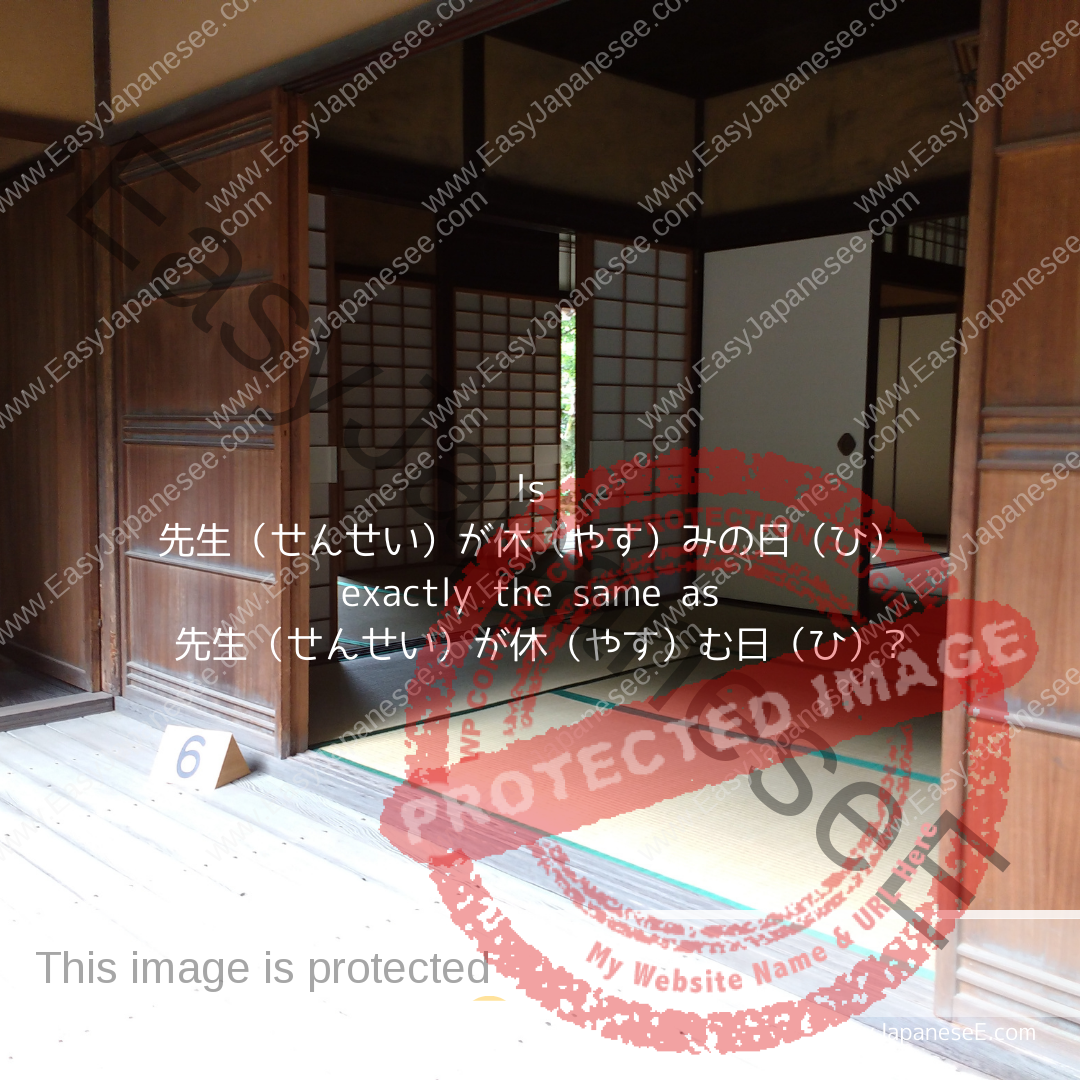

Is 先生(せんせい)が休(やす)みの日(ひ) exactly the same as 先生(せんせい)が休(やす)む日(ひ)? Both of these phrases use a contact clause and from a student’s point…
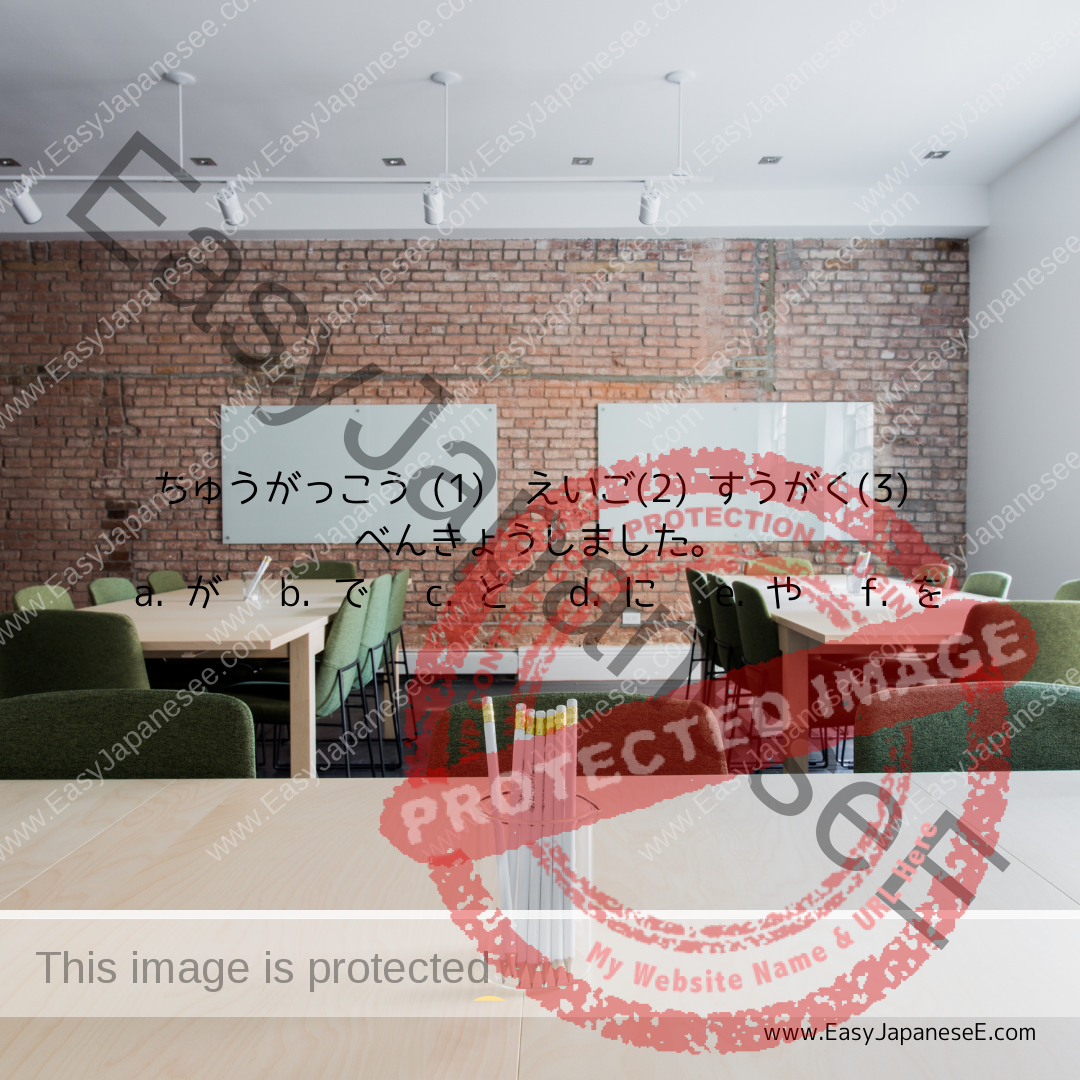
ちゅうがっこう (1) えいご(2) すうがく(3) べんきょうしました。a. が b. で c. と d. に e. や f. を The intended meaning is:…
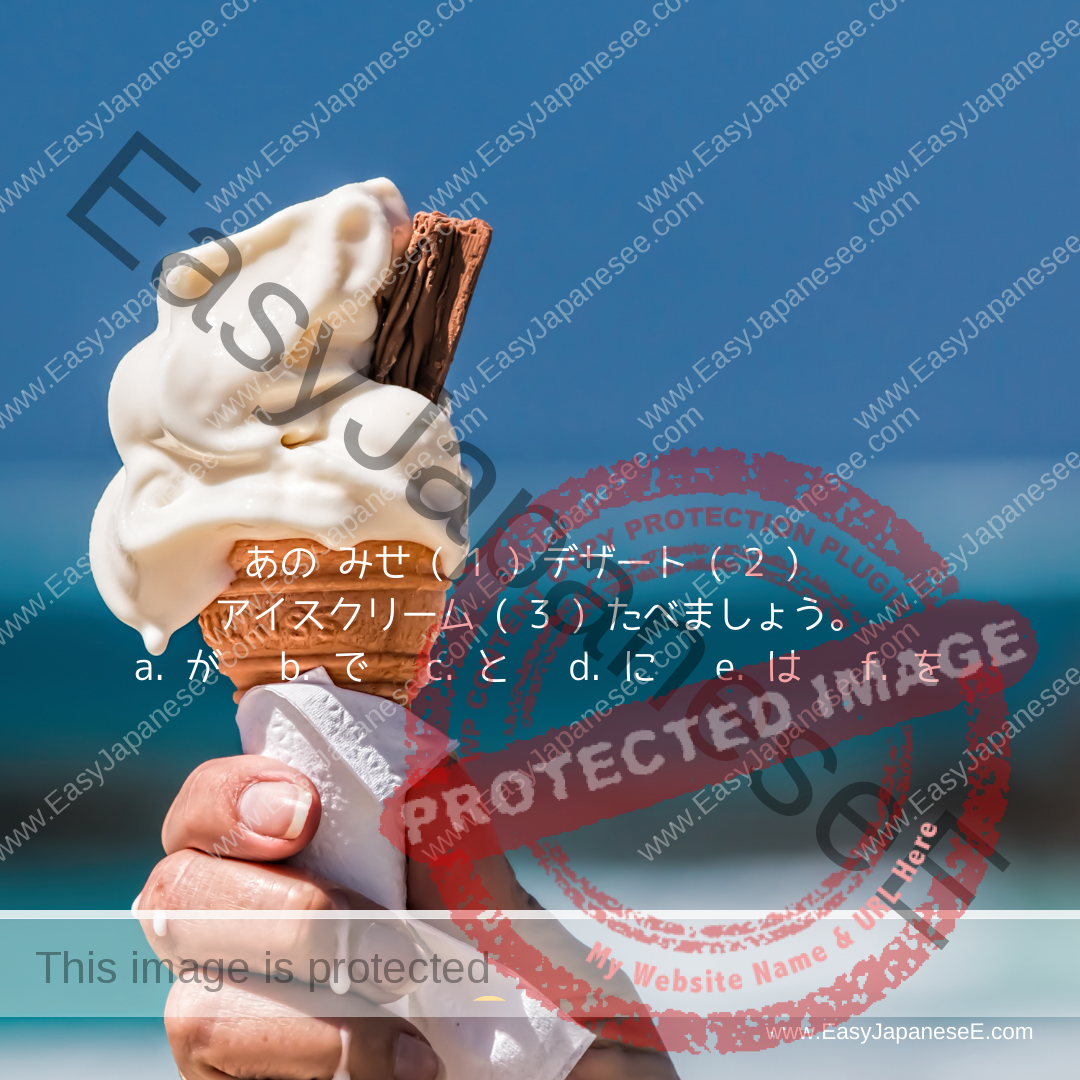
あの みせ ( 1 ) デザート ( 2 ) アイスクリーム ( 3 ) たべましょう。a. が b. で c. と d.…

A “contact clause” sounds like something very difficult but it’s just a short phrase that explains a noun. It’s easy! Read this explanation and have a go.

ひこうきと しんかんせんでは どっちのほう( )べんりですか。a. が b. の c. は d. を The intended meaning is between aeroplanes and shinkansen trains,…
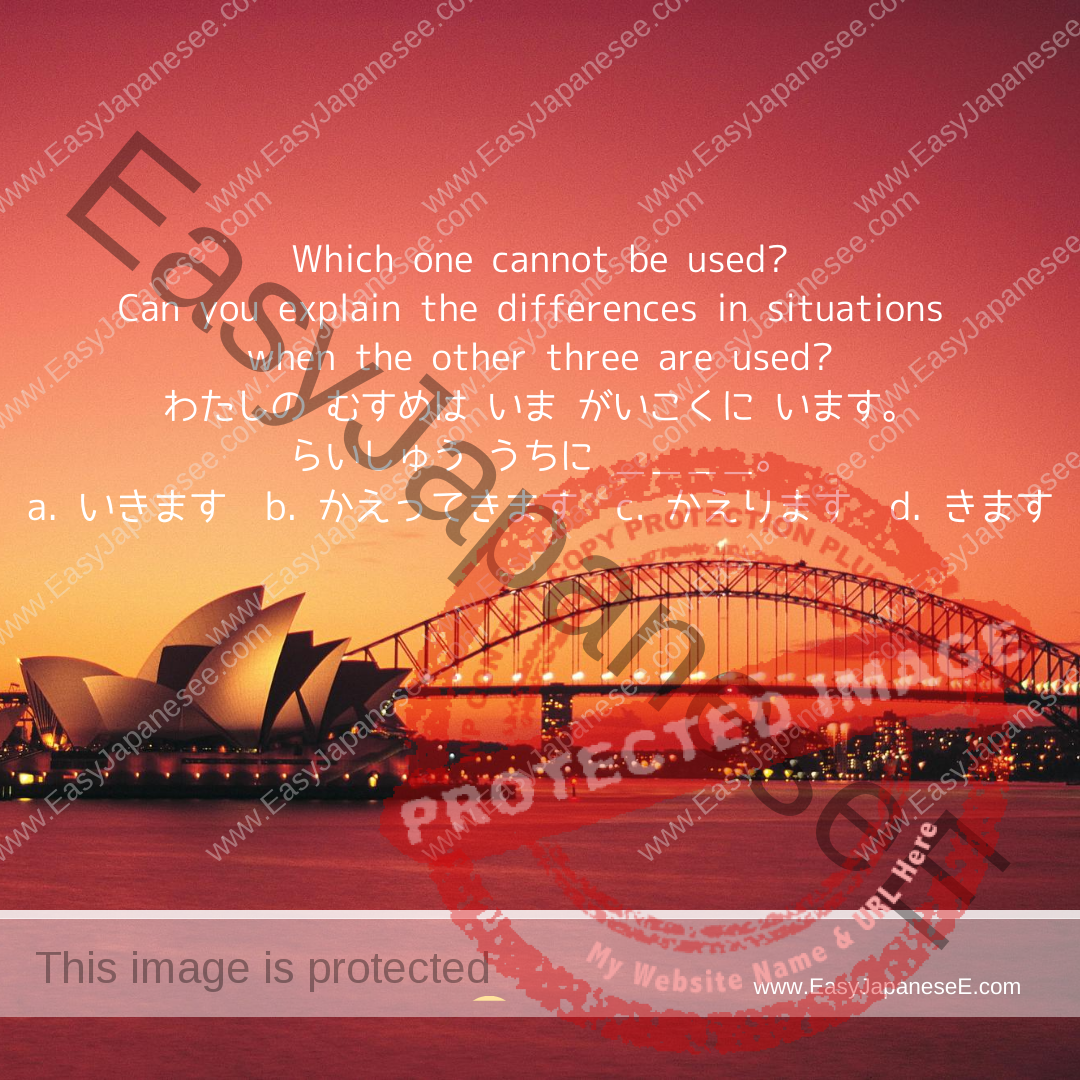
わたしの むすめは いま がいこくに います。らいしゅう うちに ____。 a. いきますb. かえってきますc. かえりますd. きます I have explained the difference among きます、いきます and…
じょうず(上手) and へた(下手) are both なadjectives and they are used to describe people’s strong points and weak points. [person] は…
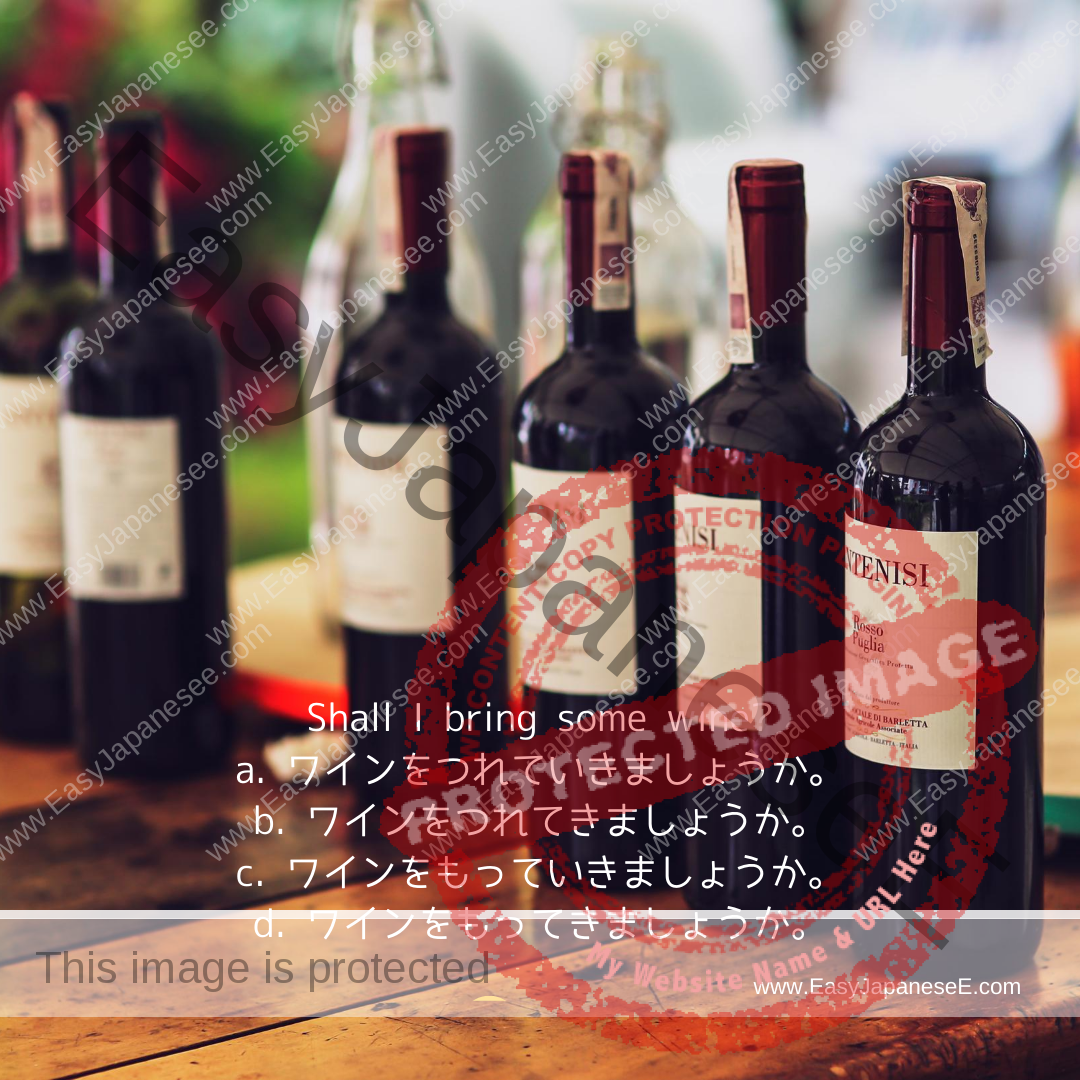
Today, I will explain the grammar point using a video. Please watch: If the video is not showing, please click…

The English verb “to have” has many meanings one of which is to show an ownership. When you own these…
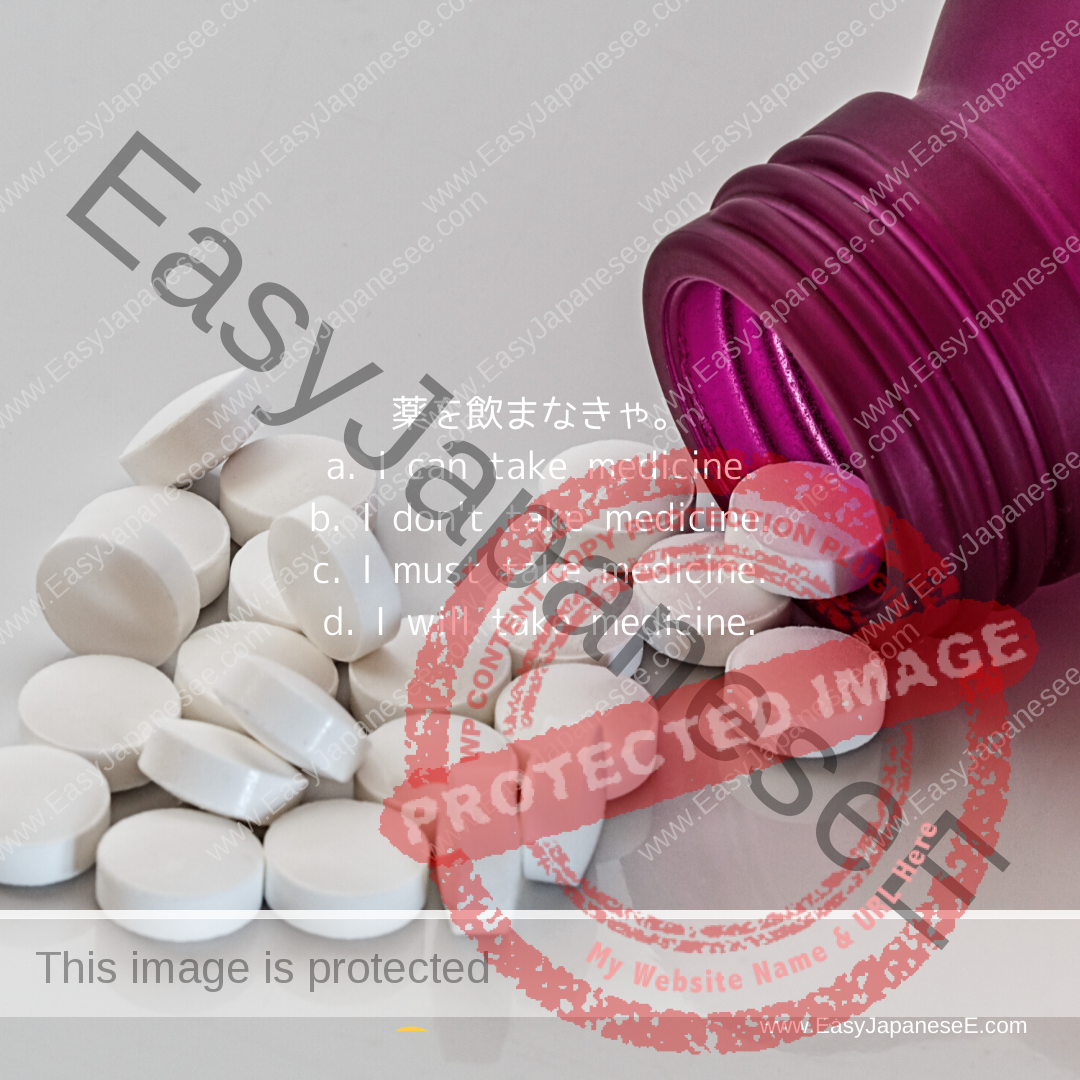
~なきゃ or ~なくちゃ is a very casual alternative for ~なければならない. They are usually only used in a conversation. Check examples here

You had a busy day and you feel tired. Which one would you say to your family when you get…

This post explains how to use the word ~まえに like the English conjunction “before.” It can only follow a non-past plain verb or a noun + の.
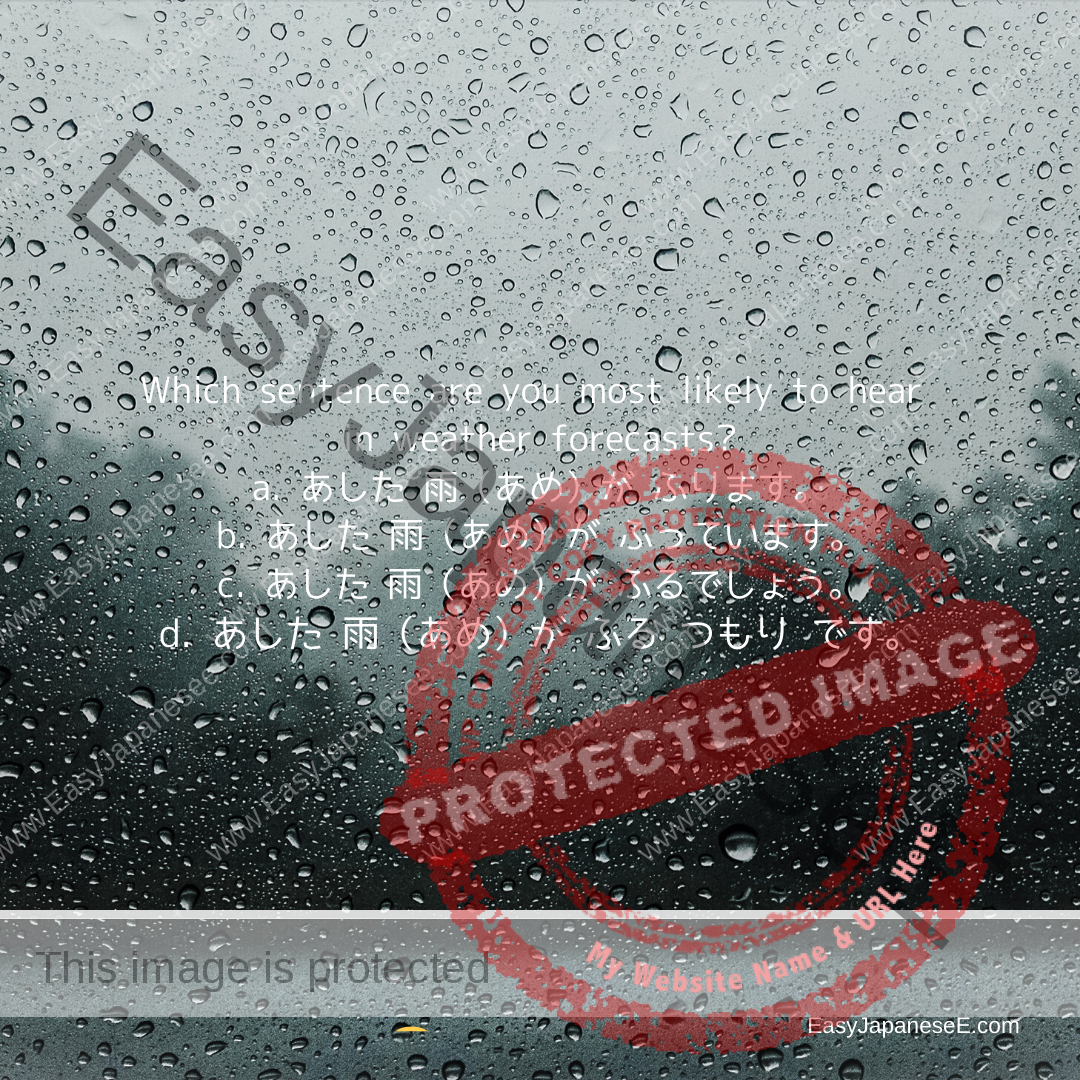
Grammatically でしょう is called a conjectural auxiliary verb (a bit mouthful, isn’t it?). It is used to make a prediction or to express your guess.
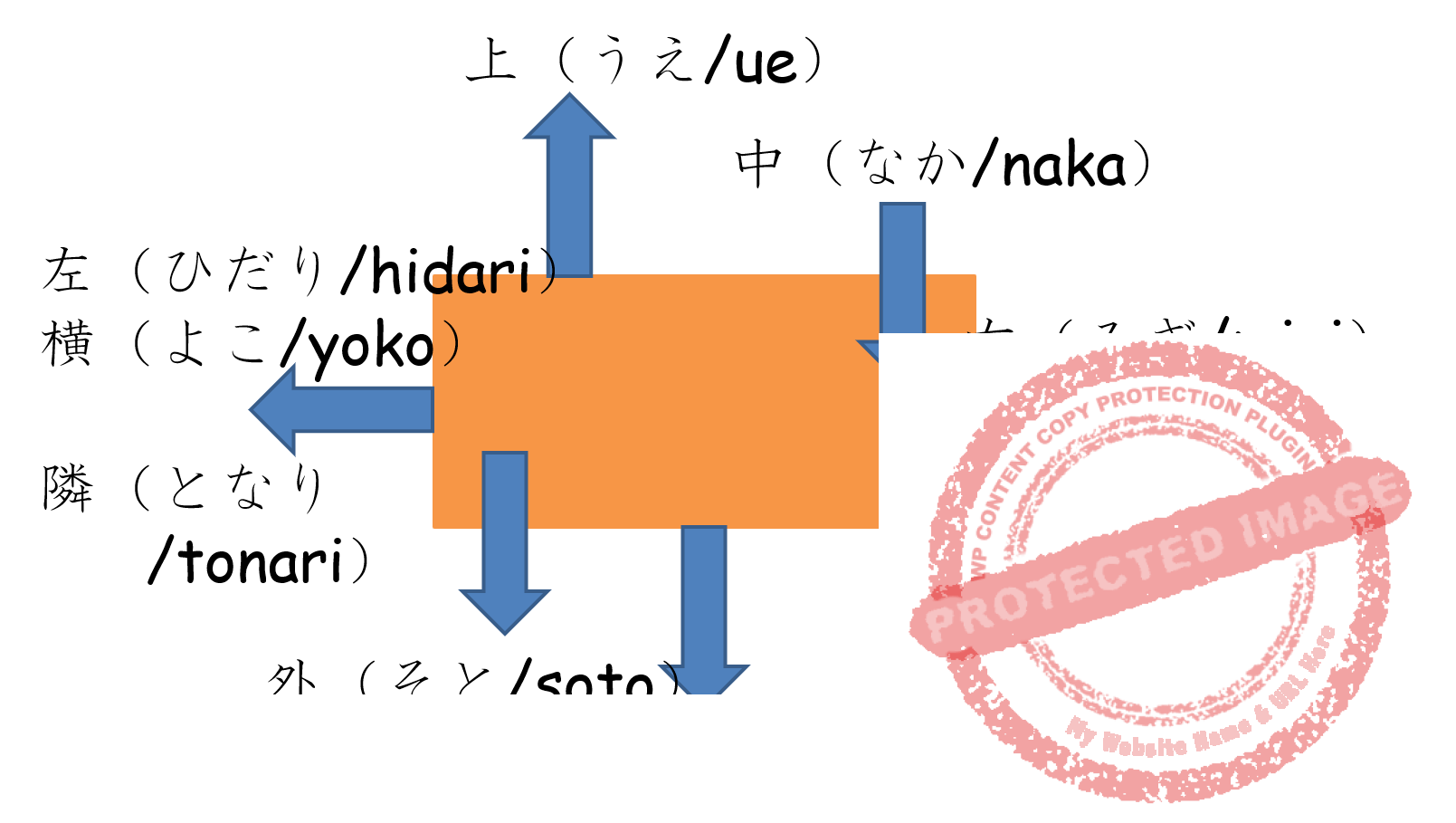
Direction words You may find the arrows for なか and そと a bit confusing, but they mean “inside” and “outside”…
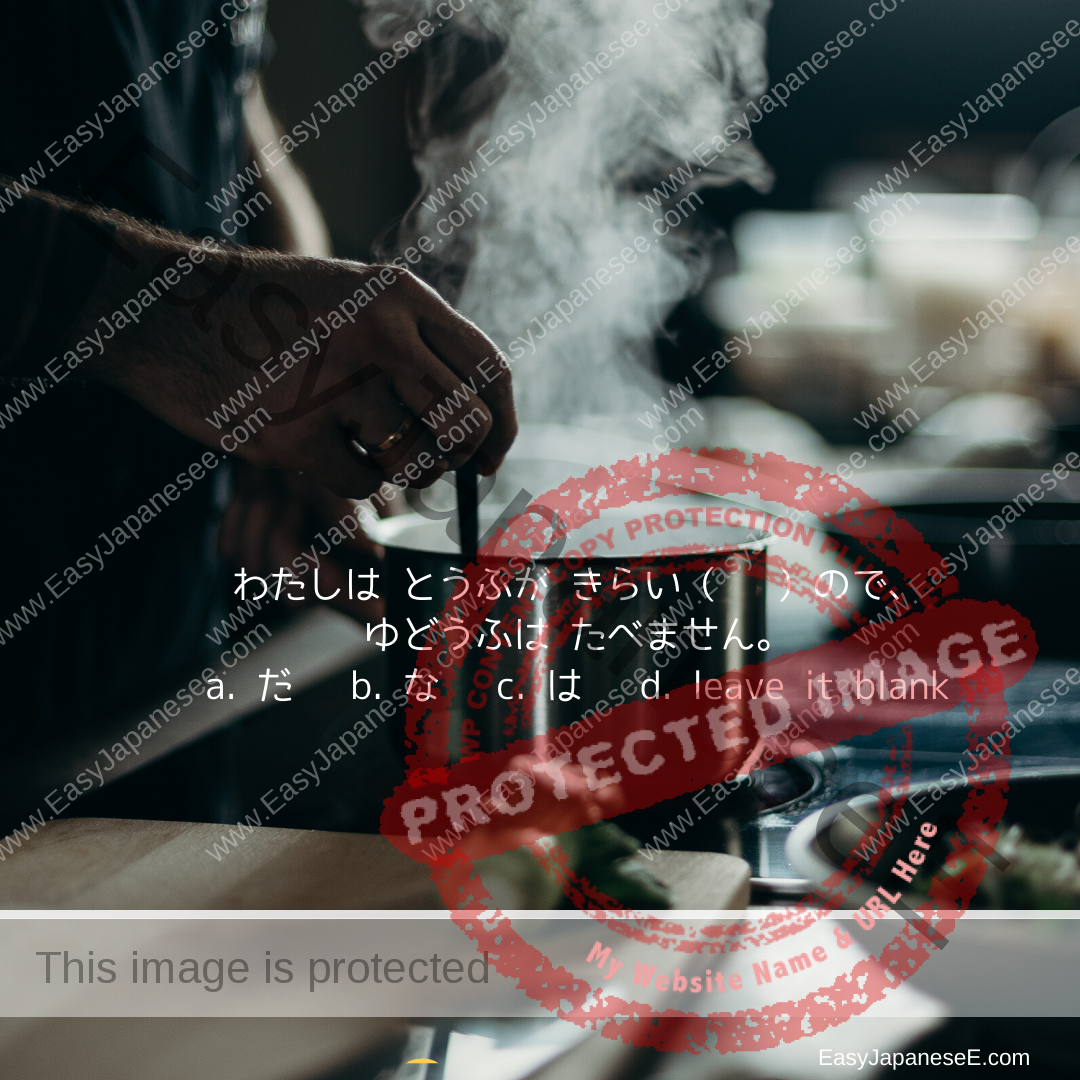
~から and ~ので both state a reason or a cause but how they connect to the preceding part is different. This post explains how.
![[plain past verb] + ほうが いい](https://www.easyjapanesee.com/wp-content/uploads/2020/06/200608-houga-ii.png)
You’d better telephone your mother.おかあさんに でんわを かけた ( )が いいですよ。a. こと b. ほう c. もの d. わけ The answer is…
![[stem] + すぎ ます/です](https://www.easyjapanesee.com/wp-content/uploads/2020/05/200601-sugimasu-e1590972099712.png)
This post explains how we describe an excessive action/condition in Japanese, using すぎます.
This post also explain the difference between すぎます and すぎです for advanced learners of Japanese.
![[plain form]ん です](https://www.easyjapanesee.com/wp-content/uploads/2020/05/200525-んです.png)
Which one of the four options sounds most natural?おかねを かして ください。さいふを _____。 a. おとしていますb. おとしたんですc. おとしましたd. おとします The correct answer…
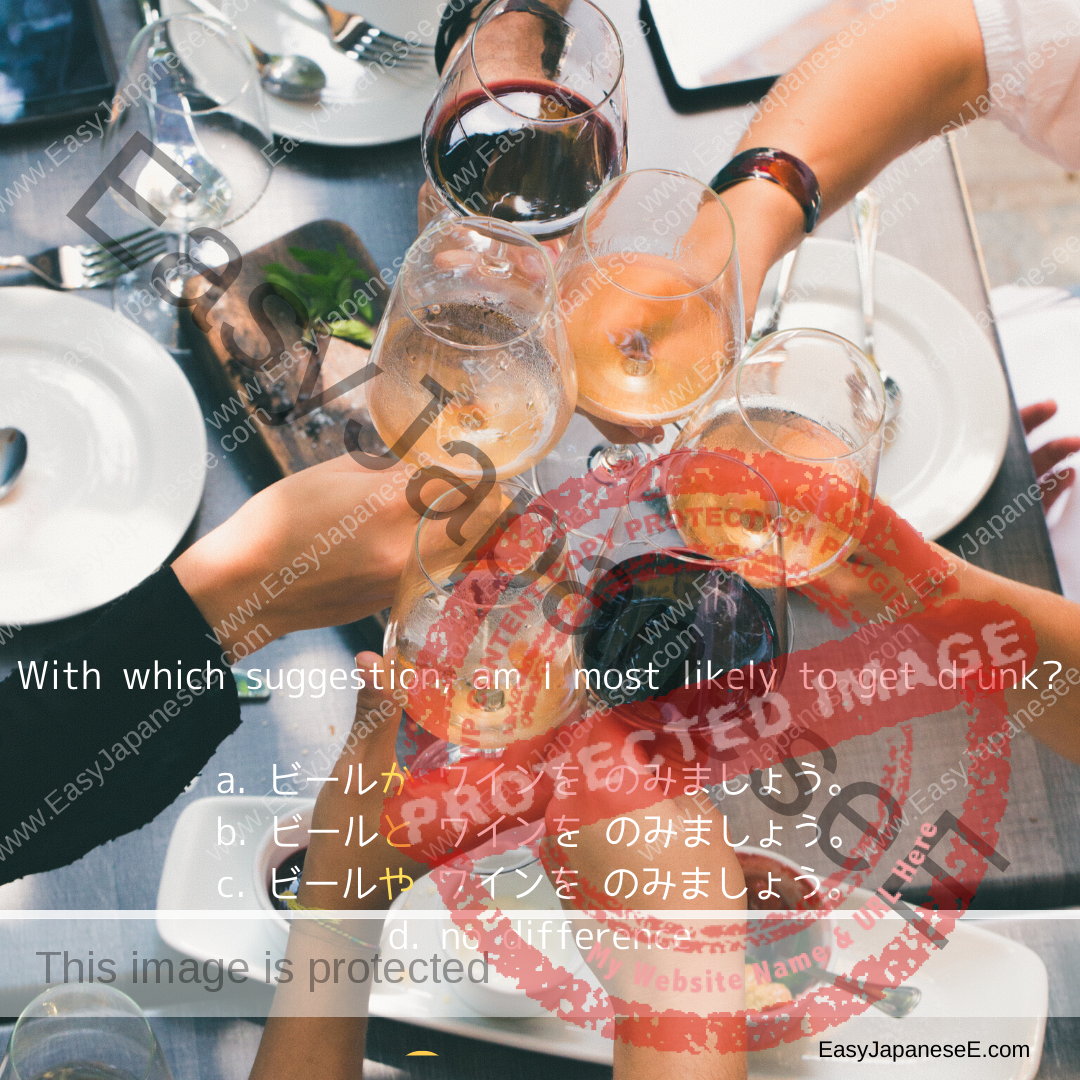
Particles are tricky. This post explains the difference among the particles か, と and や that are used for the English ‘and” or “or”.
![[past plain verb] + ことがあります](https://www.easyjapanesee.com/wp-content/uploads/2020/05/200511-たことがありますか.png)
[past plain verb] + ことがある/ことがあります is an expression to mention a past experience, “have done ~.” Sentences are written both in the plain and polite forms.
